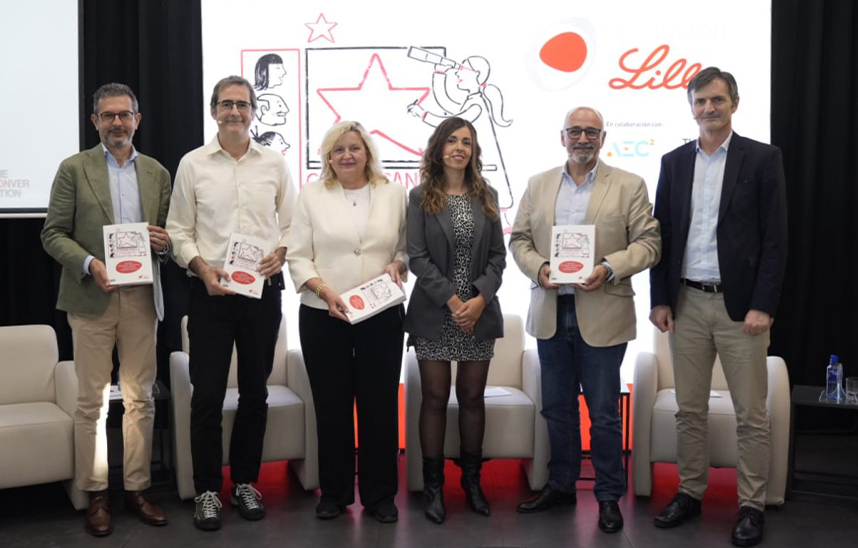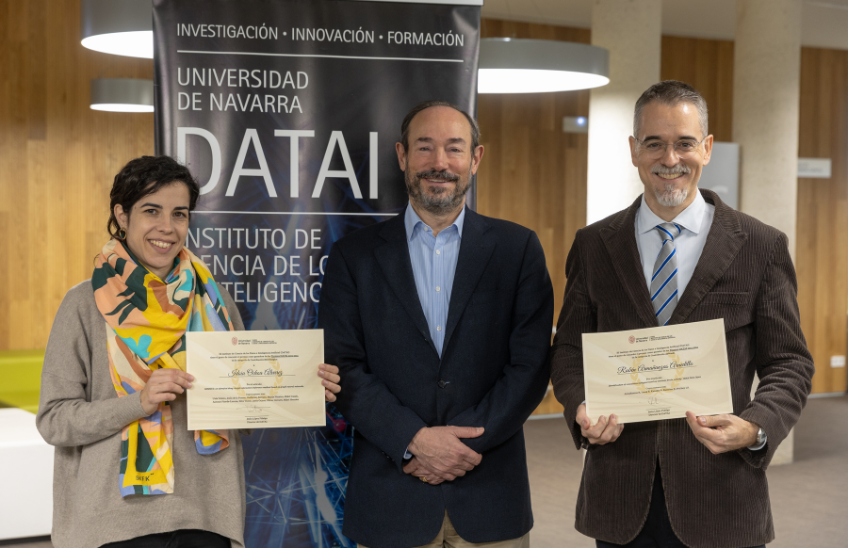IA+Igual and the University promote a model to certify the ethical use of AI in the workplace
The White Paper presented today proposes the instructions for a certification standard that avoids algorithmic discrimination in selection and management processes.

PhotoJoséJuan Rico/
17 | 10 | 2025
Can a machine decide who to hire without discriminating? At a time when automated systems are transforming people management processes, the data Science and Artificial Intelligence Institute of the University of Navarra (DATAI) has prepared a White Paper that proposes the instructions for developing an ethical certification standard for algorithmic systems applied to human resources.
The document, carried out in the framework of the IA+Igual social innovation pilotproject , responds to the recommendations of the European Union on the use of AI manager in high-risk sectors. Through empirical research in seven companies that use algorithms in different human resources processes -such as selection, assessment or promotion-, and three models of data governance strategy, the report identifies real risks of invisible biases that can especially affect vulnerable groups and compromise fairness in access to employment.
The main goal the White Paper is to promote the understanding and implementation of AI in people management processes, with special attention to its ethical, legal and organizational implications. "Based on real cases, we analyze how these technologies are changing labor relations, review the current rules and regulations on privacy and regulatory compliance, and anticipate core topic challenges, such as the need to develop AI solutions that are scalable, adaptable and sustainable in increasingly dynamic, interconnected and constantly evolving work environments," says José Luis Poveda Marina, transfer researcher at DATAI and co-author of the White Paper.
Urgent challenges: from legal compliance to algorithmic justice
The report identifies four core topic challenges that must be addressed to ensure the ethical and effective use of artificial intelligence in the workplace. The first is the persistence of "invisible biases": eliminating variables such as gender or disability does not ensure impartial decisions, as algorithms can still replicate inequalities through associated variables. The second challenge is the "lack of HR auditing standards", which prevents a rigorous assessment of the fairness, legality and transparency of algorithmic systems applied to people management .
Thirdly, the report warns of "legal loopholes" in the face of technologies such as generative AI or other automated models, whose ability to modify their behavior raises serious doubts about traceability and the assignment of responsibilities. Finally, it highlights the "invisibilization of vulnerable groups". Legal restrictions on the processing of certain sensitive data make it difficult to analyze structural inequalities, which limits the ability to correct historical biases and perpetuates situations of exclusion.
These challenges, says Poveda Marina, "reflect the urgent need to build an artificial intelligence that is not only technically advanced, but also understandable, equitable and socially manager".
Towards inclusive and sustainable AI
Marisa Cruzado, coordinator of the IA+Igual project and technical director of the White Paper, stresses the need to approach AI from a multidisciplinary perspective. "We are facing a present challenge that will define the future. That is why we need diverse visions to help us integrate AI into all human processes, not just work processes. If we want artificial intelligence to empower talent and strengthen our European values of fairness, we must act now with a strategic and ethical vision."
Along these lines, the document proposes a threefold challenge in social innovation: to train professionals in the ethical use of AI; to make groups excluded from data and decisions visible; and to ensure that technology does not perpetuate inequalities, but rather contributes to fair and sustainable development .
IA+Igual is a pioneering pilot initiative in Europe, financed with Next Generation funds (EU) and promoted by the Community of Madrid, whose goal is to move towards a more ethical, transparent and egalitarian artificial intelligence in the business environment.


